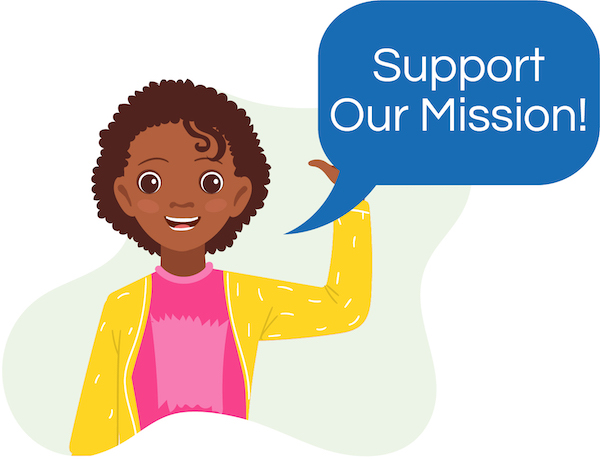The usual consideration for professionals sharing ideas and developmental information with parents is to write articles suggesting critical things to consider talking to their children about as they grow and mature. That is always important parenting information to read. But, I thought I would take a different tact today and write about some things I believe parents should avoid talking about with their children. I am focusing particularly on some areas of information that parents sometimes “slip” into sharing with their children especially as their children get older and enter into the adolescent years.
This discussion is interesting because as children grow and mature into adolescence interpersonal values in the parent-child relationship change…but not that much. When children are very young most parents intuitively avoid talking about certain “adult” issues in front of them. But sometimes as children get bigger and older the parent-child boundaries in this regard become a little more elastic. This often can confuse the circumstances between protecting your child from certain information and sharing [to some extent] the reality of the family’s situation that may be impacting to them. The choice is always the parents. But in choosing to discuss the issues I am detailing, should you decide to share information with an older child, it hopefully will be motivated and done in a way that is sensitive to their emotional development and relayed in a manner that is done to inform and not to vent.
I would guess that many of us are aware of family situations where we have observed a child being put in the middle of two warring or feuding parents and used as a pawn to make a point about a personal or family dynamic that is occurring in the home. This kind of scenario is extremely unhealthy and damaging for a child of any age [yes, even older children]. I am writing this blog to try and create an awareness of how to avoid such devastating effects on children.
So let’s take a look at three issues that are emotionally charged in any family, and as dynamics are played out- how to protect the children from being in the emotional line of fire of the adults.
- Marital Problems: Most married couples will go through periods where their relationship is to some degree strained. That is normal and to be expected. Stress, work and home influences, differences in the husband and wife as they grow and change, habit changes or rigidities, and just the normal wear and tear on long term relationships will cause peaks and valleys, even in the best relationships.
- Occasional disagreements and arguments will be par for the course as two people live together. Most children as they grow up will observe occasional tension between their mom and dad. It may frighten them to see this when they are little and it may confuse or threaten their security when they are a little older. At these times it is best to reassure children that mom and dad are OK; that disagreements are normal; and that occasionally mom and dad may raise their voices. But in all cases they love one another, they love their children and everything is OK. Children never need to be burdened with what the argument was about, they should never have to be witness to any level of physical or emotional abuse between their parents, and they must never become pawns between the parents during times of marital strife. Should the marital relationship get to the point where divorce is being considered, a lot of thought must go into if, and what, to say to a child about that decision.
- Everyone knows that a divorce can be devastating for a child. It’s for that very reason that parents should never discuss marital problems with their children regardless of their age. In most cases, all you will do is confuse your child and have them constantly worrying that a divorce may be imminent. Even the occasional parental argument causes the imagination of some children to automatically think that a divorce is imminent. A very common fear for many children growing up is that their parents will get divorced. That fear causes much underlying anxiety for the children as they tend to dwell on what will happen to them in the process. The best advice is to never bring your child into the direct circumstances of any marital discord regardless of the child’s age. If a couple ultimately makes the decision to get a divorce, the information necessary to share with the children at that point is around the pragmatics of how it will affect their lives. The goal of any parent-child communication around this issue should be repetitive reassurances that they are loved by both parents and that mom and dad are working hard together to make sure that their life remains as unburdened as possible by this decision. Regardless of how old a child may be, parents should never feel free to lay out all the dirty laundry about the reasons why they have arrived at the decision to divorce. The rule here is to never make your children hostages in the breakup of the marriage, or to vent in order to get emotional support from the children.
- Negative Feelings about Family or Friends: You may have heard it said that when you marry someone you are marrying not only that person, but their family and friends as well. A common source of tension in some families is around the acceptance, or non- acceptance, of spousal family members or friends. How many sitcoms that we love are based around the interfering mother-in-law, or about pushy friends? These themes while funny on television may be a source of family tension and disruption that children may get dragged into purposefully or inadvertently.
- Do your in-laws drive you nuts? What about that boisterous and obnoxious uncle that your wife loves to have around but who drives you absolutely crazy with his loud mouth, mannerisms and know-it-all attitude? Or the selfish biological parent of your step child? These situations are all too real and exist as a constant source of tension in some marriages. Well, you may be sorry to hear it, but do your child a favor and keep all that to yourself. These situations are way too easy to want to emotionally “unload” on…but just not in front of the children. While you may find your relationship with these people to be annoying and disturbing, this person in your child’s eyes may be just the perfect individual that they want to have around.
- While the in-laws and “certain” friends could be a strain to the husband-wife relationship, this is another issue that the children need not be dragged into for any reason. This is adult business and must be treated as such. Unless someone poses a specific threat to your child, why in the world would you stop him or her from loving anyone, even if that is not the way you feel about them? In these emotional battles, always put your child first and never try to bring them into the fray.
- Your Own Issues or Problems: Remember back in the day when you thought your mom and dad had all the answers? Well guess what? Your kids believe the exact same thing about you. I know, like in my own case- laughable, but perception is reality. So the last thing you want to do is shatter that “reality” by discussing your own self-doubts with your children. That doesn’t mean that you can’t discuss difficult situations which you managed to conquer. After all, every child can learn from stories like that. But it does mean that you shouldn’t bombard your children with the issues that keep you up at night. All that will do is make them feel the same insecurity. A better approach is to put a confident foot forward even when you’re feeling anything but. After all, things have a funny way of working out when you approach them with confidence and faith. Wouldn’t you rather teach your children that fact than treat them like your therapist?
Children at every developmental stage need enough emotional energy to adjust to and handle their own problems and insecurities. During this time especially they will look to their parents as a source of strength, knowledge and support. They need to lean on you at various points in their developing lives. You on the other hand should not try to drag your children into your issues. Seek your supports elsewhere. Even with older children parents should not lay their burdens at the feet of their children for any reason. Children, especially adolescents, will narcissistically just turn your problems into how it is going to affect them and usually cause them unnecessary anxiety and fear.
Rather than descriptively sharing your burdens with your children, teach them how to empathize with what people in the family may be going through at certain stress times. That can be accomplished with simple, age appropriate, information without getting into the nitty-gritty of your issues or problems.
The premise of what I have written about simply represents the ability to openly and safely communicate with your children. Some topics are tougher to discuss than others, but overall if you invite open discussion with your children than you create a more comfortable environment for them to ask questions or tell you about their thoughts. Pick your spots when communicating about issues with your children, be careful of what and how you tell your children certain more “personal nature” things and never communicate with them as a personal venting or to drive them away from someone. Your job as a parent is to prepare and equip your children with the skill set necessary to become responsible, healthy adults. You are the most influential person in your child’s life and you want your credibility to last a lifetime with them.
Be well, joe cozzo




